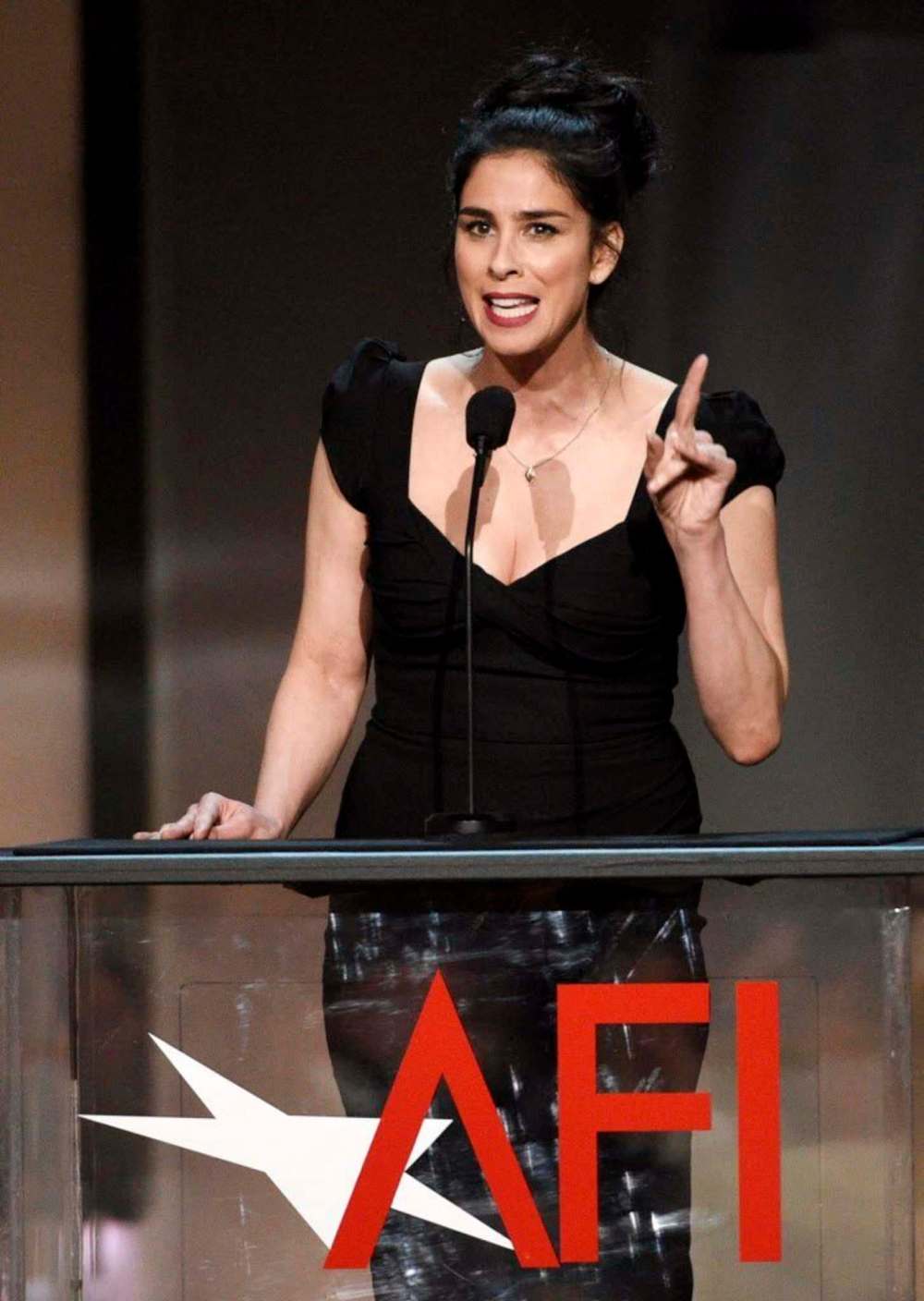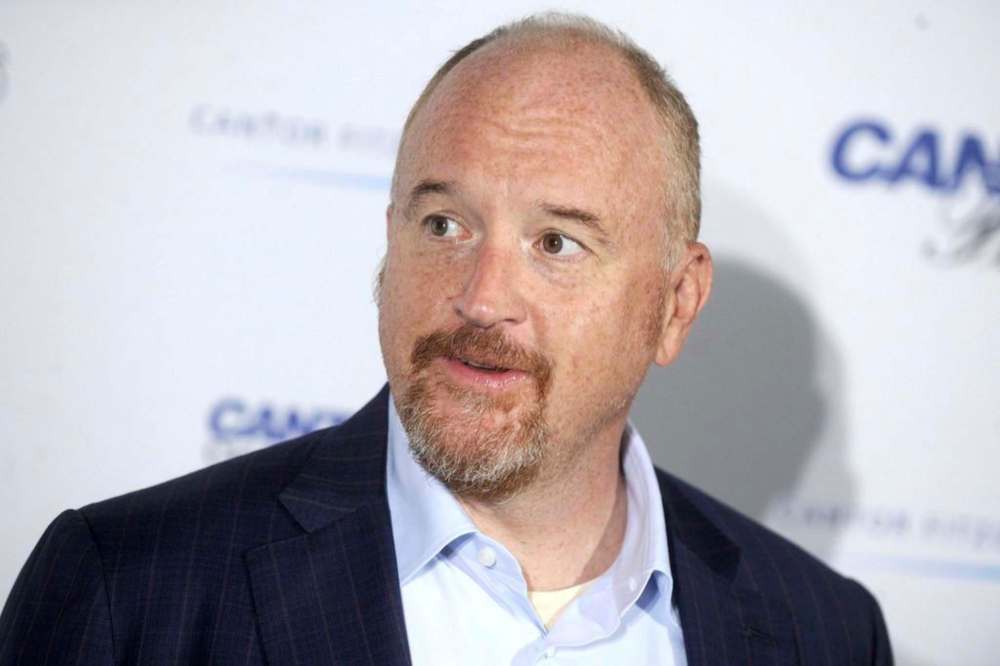Women in showbiz feeling tied to men’s bad actions
Advertisement
Read this article for free:
or
Already have an account? Log in here »
To continue reading, please subscribe:
Monthly Digital Subscription
$0 for the first 4 weeks*
- Enjoy unlimited reading on winnipegfreepress.com
- Read the E-Edition, our digital replica newspaper
- Access News Break, our award-winning app
- Play interactive puzzles
*No charge for 4 weeks then price increases to the regular rate of $19.00 plus GST every four weeks. Offer available to new and qualified returning subscribers only. Cancel any time.
Monthly Digital Subscription
$4.75/week*
- Enjoy unlimited reading on winnipegfreepress.com
- Read the E-Edition, our digital replica newspaper
- Access News Break, our award-winning app
- Play interactive puzzles
*Billed as $19 plus GST every four weeks. Cancel any time.
To continue reading, please subscribe:
Add Free Press access to your Brandon Sun subscription for only an additional
$1 for the first 4 weeks*
*Your next subscription payment will increase by $1.00 and you will be charged $16.99 plus GST for four weeks. After four weeks, your payment will increase to $23.99 plus GST every four weeks.
Read unlimited articles for free today:
or
Already have an account? Log in here »
Hey there, time traveller!
This article was published 27/10/2018 (2604 days ago), so information in it may no longer be current.
When Sarah Silverman walked back comments she made Monday about Louis C.K. to Howard Stern, she mentioned how often she gets asked about C.K.’s admitted sexual misconduct.
It’s a dynamic that many women in entertainment face when they’re associated — however tangentially — with a man whose career has been interrupted or toppled in the midst of the #MeToo movement. He could have been their harasser, or just a longtime friend, early collaborator or a former co-star. And suddenly, his misdeeds become glaring footnotes on a woman’s professional accomplishments.
“I don’t want you to be the most notable thing that ever happened to me,” is how a female character on Netflix’s BoJack Horseman put it to a man who physically assaulted her. “I don’t want you to be the question I get asked about in interviews for the rest of my life.”

Silverman had been friends with C.K. for many years, and after he admitted the sexual misconduct allegations against him were true, Silverman went on her Hulu show to say she was angry “for the women he wronged and the culture that enabled it.”
C.K. has re-emerged in the past several weeks, performing unannounced drop-in sets at New York City comedy clubs, and he came up in Silverman’s interview Monday with Stern. When they were younger, Silverman said, she consented to watch C.K. masturbate — the very thing he had forced other women into doing. “It’s not analogous to the other women that are talking about what he did to them,” Silverman told Stern. “He could offer me nothing. We were only just friends. So sometimes, yeah, I wanted to see it. It was amazing.”
Silverman faced immediate criticism. “To be real clear, C.K. had ‘nothing to offer me’ as I too was his equal on the set the day he decided to sexually harass me,” tweeted comedian Rebecca Corry, one of the first women to come forward and publicly accuse C.K. “He took away a day I worked years for and still has no remorse. He’s a predator who victimized women for decades and lied about it.”
“Rebecca I’m sorry,” Silverman tweeted back to Corry, adding that she had been wrong about the power dynamic. “Ugh this is why I don’t like weighing in. I can’t seem to do press 4 my show w/out being asked about it.”
Corry responded to Silverman, tweeting “I know exactly how you feel” and “I can’t seem to live my life” without receiving threats and hateful messages. “I’m sorry your friend created this situation,” Corry continued. “We deserve to do our art without having to deal with this.”
The entertainment industry’s reckoning with sexual misconduct is one of pop culture’s biggest stories of the moment. And many want to especially hear from the women who are close to the stories fuelling the cultural shift. But that can also result in these women feeling like they’re forever tied to a man’s bad behaviour, no matter what they’re doing in their own careers.
Katie Couric often gets asked about her former Today Show co-host Matt Lauer — who was fired by NBC News last year for “inappropriate sexual behaviour.” Us Weekly cited an “insider” saying in May that Couric “is really sick of being asked about Matt Lauer” as she was on a press tour for a new National Geographic series. “Katie answers when asked about Matt even if she’s repeating herself,” the source said. “She understands the interest and answers.”
Tig Notaro’s name had been linked with C.K. since he released her 2012 comedy album, an impromptu set just after her breast cancer diagnosis.

In the New York Times story about five women accusing C.K. of sexual misconduct — allegations he subsequently admitted to — Notaro said she felt “trapped” by her association with him and she worried “he released my album to cover his tracks. He knew it was going to make him look like a good guy, supporting a woman.”
Comedian Michelle Wolf had opened for C.K. on his tour and guest-starred on his Horace and Pete web series. And so just as she was doing press for her much-lauded HBO special, Nice Lady, she was asked about C.K.
“He’s always been very supportive and generous, and my experience with him is very different than others, I suppose,” she told the Daily Beast. “But, in this kind of big moment in my career, I don’t really want to talk about stuff that a man did.”
“Fair enough,” the news site wrote. “After all, it wasn’t Louis C.K. who performed thousands of standup sets or spent years in a pair of late-night writers rooms meticulously honing her craft, transforming from a nerdy scientist into the stage-commanding badass in Nike Hi’s you see before you today. It was Michelle Wolf.”
— Washington Post


